- The Best Sauna Tents – A Complete Guide (2026) - January 22, 2026
- The True Cost of Being a Digital Nomad in Canada in 2026 - January 8, 2026
- review: Arc’Teryx Gamma lightweight jacket – what OutdoorGearLab doesn’t tell you - October 22, 2025
Fall and winter is right around the corner and that means cold, wet, and snowy weather. I choose what are in my opinion the best Vivobarefoot shoes for winter conditions – be it hiking, commuting, or biking.
Note: 25% off Vivobarefoot discount code: NOMAD15
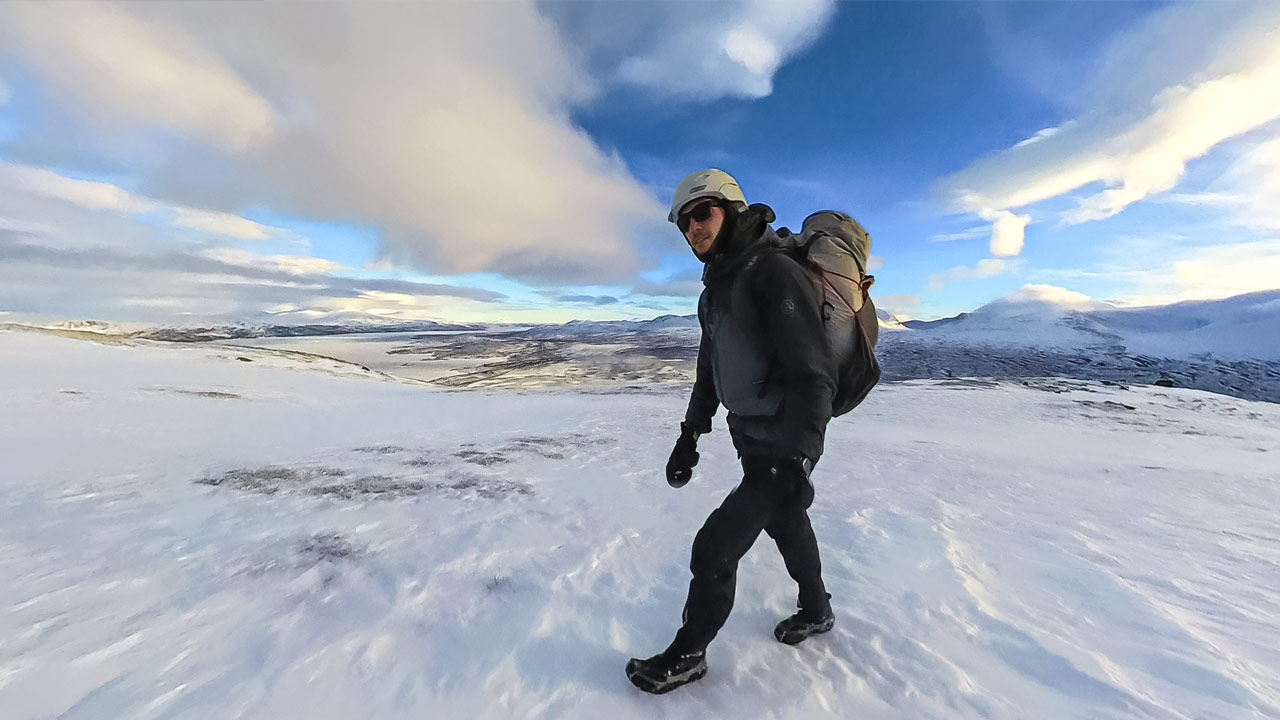

Table of Contents
Small tips for barefoot winter shoe buying:
Before I continue with this guide, I’d just like to offer a few small tips and words of advice for buying winter barefoot hiking shoes!
- Size a half size or full size up! This way you can wear a second or thicker layer of socks without constricting your feet and reducing circulation.
- Merino wool socks! Merino wool is a ‘supermaterial’ of sorts because of it’s anti-smell and thermally regulating properties. It’s a literal game changer. (Merino wool socks comparison here)
- Try before you buy if you can – everyone’s foot is different and maybe there’s a barefoot shoe store near you – worth a search!
- Waterproof? Instead go for something that breathes and wear waterproof merino wool socks – now you can use them in 3 seasons and not just one.
- Insole? The Vivo shoes mentioned all have insulating insoles, but custom wool/felt insoles will help your feet stay cozy even better!
Vivobarefoot Tracker Forest ESC – Best intense hiking barefoot boot
If you’re more serious about wintertime hiking and need more grip, these are Vivobarefoots latest & greatest. Using a sole with thicker lugs for traction, you sacrifice some of that barefoot feeling for more secure footing in loose/muddy/snowy conditions.


The shoes aren’t waterproof but water-resistant to allow for breathability. They can be treated with wax or another coating to change this, though you’ll lose out on the breathability and thermal regulation these shoes have.
In terms of style, they’re quite ‘forward-thinking’ and tech-y. Maybe this is for you, maybe not, but I find they look fairly snazzy. If you’re looking to tackle trails with pace, they’re definitely the right pick.


Vivobarefoot Primus Trail All-Weather/Winter – Best barefoot running shoe for winter
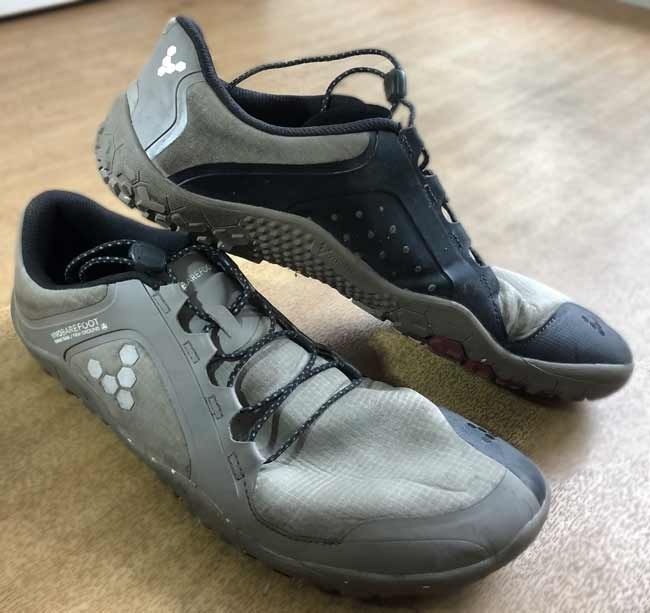

The lightest and most agile barefoot shoe of this bunch, the Primus Trail All-Weather/Winter edition are almost identical to the regular Primus Trails except for the material on the upper.


This being a neoprene-type fabric which feels similar to that on a wetsuit. It doesn’t keep the water out and your foot may still get wet, however this wetsuit-like upper helps a lot with retaining temperature. I’ve had multiple occasions where my feet have gotten entirely drenched with these shoes on but this warmth-retention really changed the game.


Vivobarefoot Magna FG (leather & wool) – Best all-around cold weather barefoot shoe
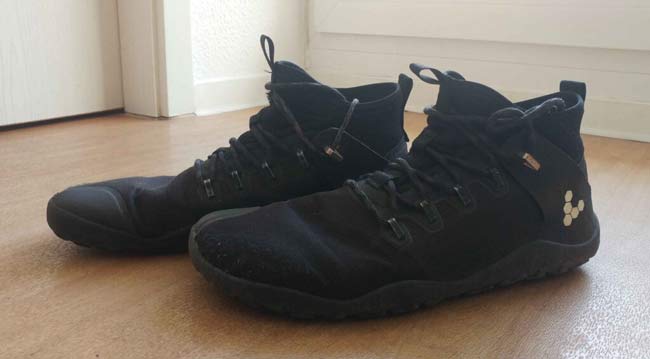

Both variants of the Magna Trail are fine, however the leather & wool Magna Trails are simply superior due to the water-repellency of leather and the thermal properties of wool.


More comfortable from the get go and with better wet & cold weather traits, I’d highly recommend the leather & wool Magna Trails over the Cordura ones. Also, I think they look fairly nice.
If you’re looking to have a single barefoot shoe that works for commuting, hiking, biking, bars, and anything else – the Magna Trails are the way to go. The ‘modern’ design won’t look out of place when you’re going out for the night with friends either.


Vivobarefoot Tracker – Best all-around winter hiking barefoot shoe
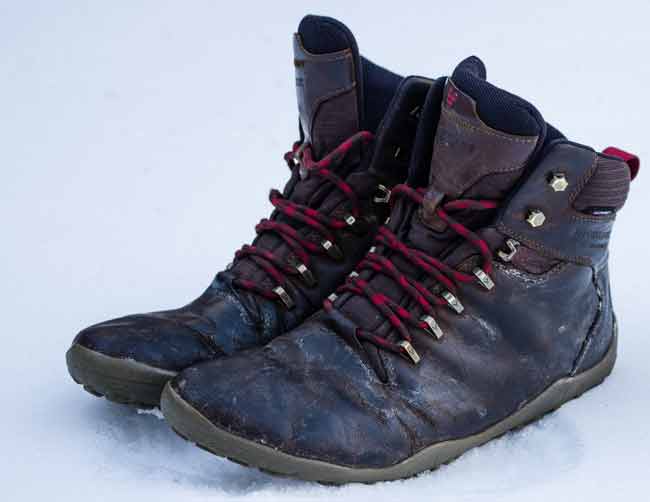

Lightweight, comfy, high ankles and made of leather, the Vivobarefoot Tracker is a solid choice overall. Enough grip for most activities and durable, these are well-made shoes and a good contender for the do-it-all work shoe.


I’d use weather-proofing or a wax if you’d like to make the Tracker more waterproof because the upper is permeable. They’re not so great for warmer climates because they don’t ventilate particularly well either.
A classic design means pleasant aesthetics and ability to wear them basically anywhere while blending in.


Vivobarefoot Tracker Winter – Best snow hiking barefoot shoe


Warmer, grippier, and tougher – the Tracker Winte are designed for gnarly conditions. Rubberized sole, insulated upper, and hefty amounts of grip, these are great for moderate winter hikes where you’ll be in snow and sludge.


They aren’t waterproof either but it shouldn’t be a problem with snow as that’ll slide off the top of the shoe. Of course, you can treat the upper to improve this and reduce the breathability.
They look much more like snow boots than any others and they’re about the only barefoot snow boot out there, so for colder climates and the likes you’re best suited by these.


Summary
There are tons of other winter barefoot hiking boots by other companies but of course this focused just on Vivobarefoot for the loyalists out there.
This All-time warmest winter barefoot list is pretty good so maybe you’ll find some inspiration from their page! Definitely useful if you’re further up North and need that protection from the elements.
Anyways, hope you liked my little list – if you have questions or need help just leave a comment down below and I’ll be glad to help out!
Check out my other ultimate Vivobarefoot buyers guide and Vivobarefoot sizing guide if you’re looking to get started with their shoes.
Note: 25% off Vivobarefoot discount code: NOMAD15
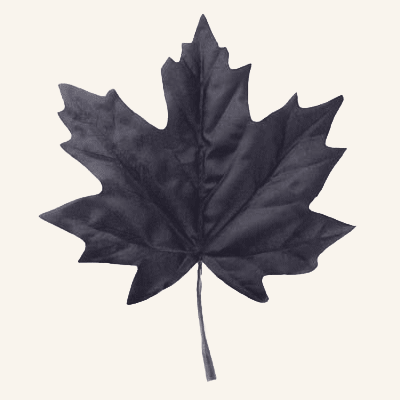

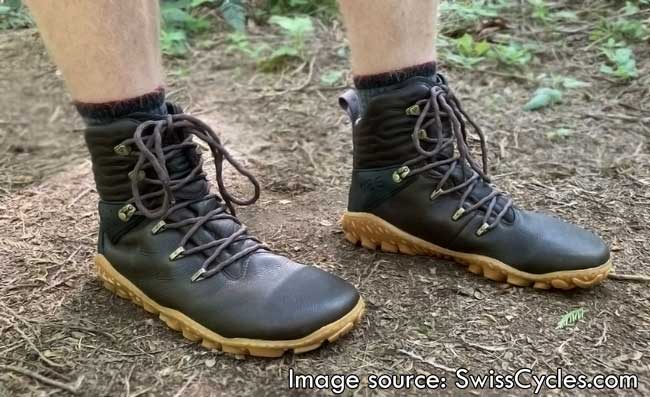
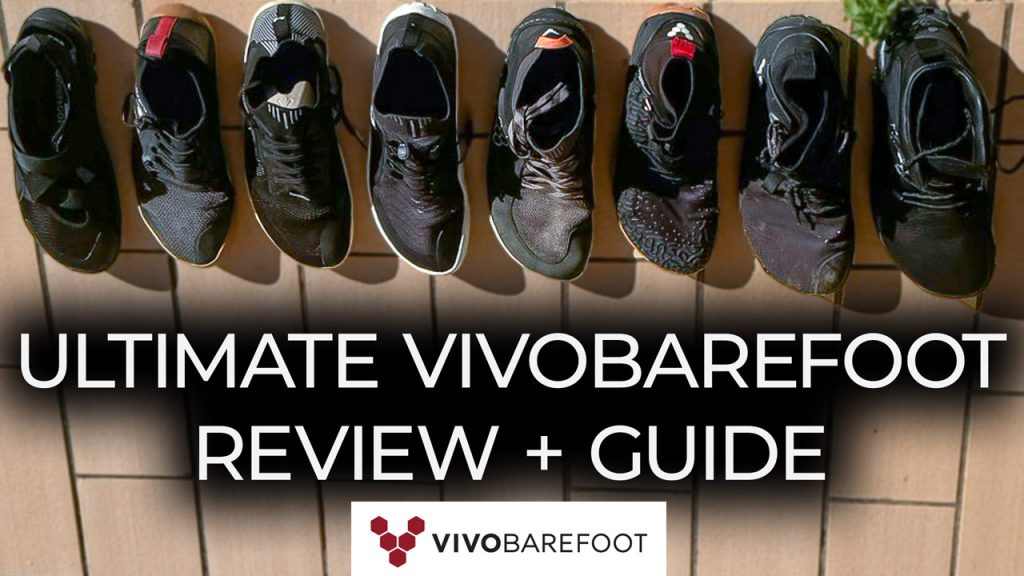
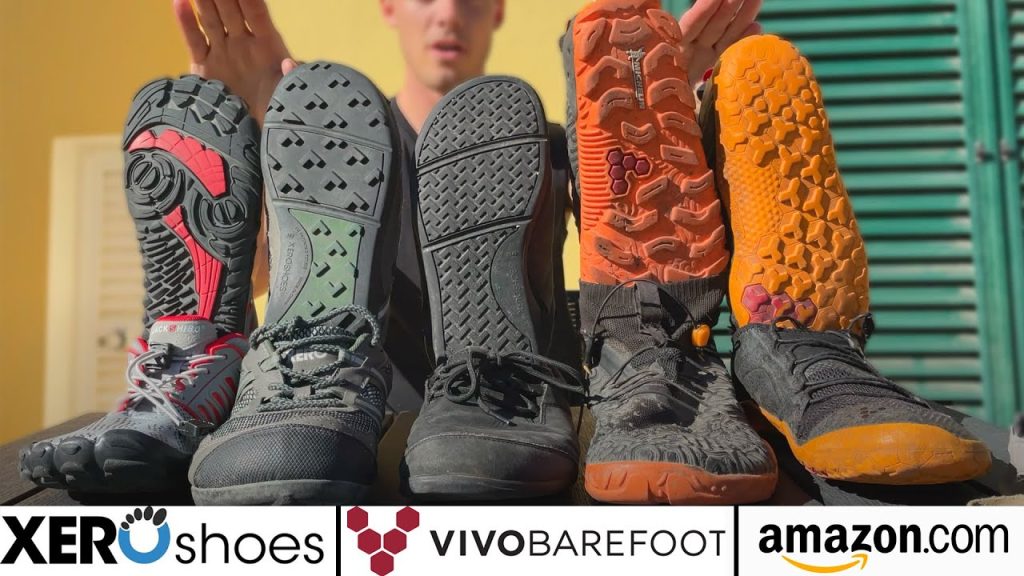

Where have you tested these boots in the winter? I am looking at the Tracker 2s but am having a hard time finding any information on temperature/snow ratings. I live in Edmonton, AB so it gets quite cold and I don’t want to spend so much on something that might not work here.
Tested in Calgary winter 😉
I recommend the Tracker 2s and use the thermal insole they come with – they work great!
Hi, slight error – the Vivobarefoot Tracker All-weather are fully waterproof, they have the waterproof membrane.
Magna Trail is tight over the instep. Looks like a nice boot but I literally can’t get them on.
It’s definitely tight for the first while but it loosens up and becomes easy to slide on later!
Thanks fir the great review. Very helpful comparing Tracker Forest ESC with Tracker SG.
If possible can I please ask specifically about the soles.
I live where the mud is sticky clay (chalk terrain) and the roots and bare chalk are lethal when wet. I imagine the Michelin sole is tackier and that stitching it onto the shoe gets around the delamination at the toe crease we sometimes see (my Primus did that).
So, is the Tracker SG sole (as) good for ciearance of clay mud AND for grip?
And does the unstitched sole perhaps eventually separate at the toe crease like the old Tracker (and my Primus 2) did.
Hard to know why they didn’t stitch the SG like they did the ESC.
The ESC breathability attracts me too.
Winter? Tracker SG might be warmer?
Thanks lots.
Will I get an email if you reply? Be great if I did. I put my address below.
Are you talking about the Tracker All-Weather SG? If so, it’s a really warm shoe for anything non-winter.
Clay is a really gnarly and tough terrain to grip to and most any shoe out there will get gummed up by it.
I haven’t had any toe crease separation on any of my Vivobarefoot shoes so I can’t really comment on that.
Personally the Tracker Forest ESC seems like a better choice for what you’re describing, unless you’re in a place to warrant the need of the SG All-weather Tracker.
Very helpful thanks.
This was helpful, thanks!
Tim here. Just left a comment on your youtube video. Now i’me confused even more because of Magna trail FGs. ehhh